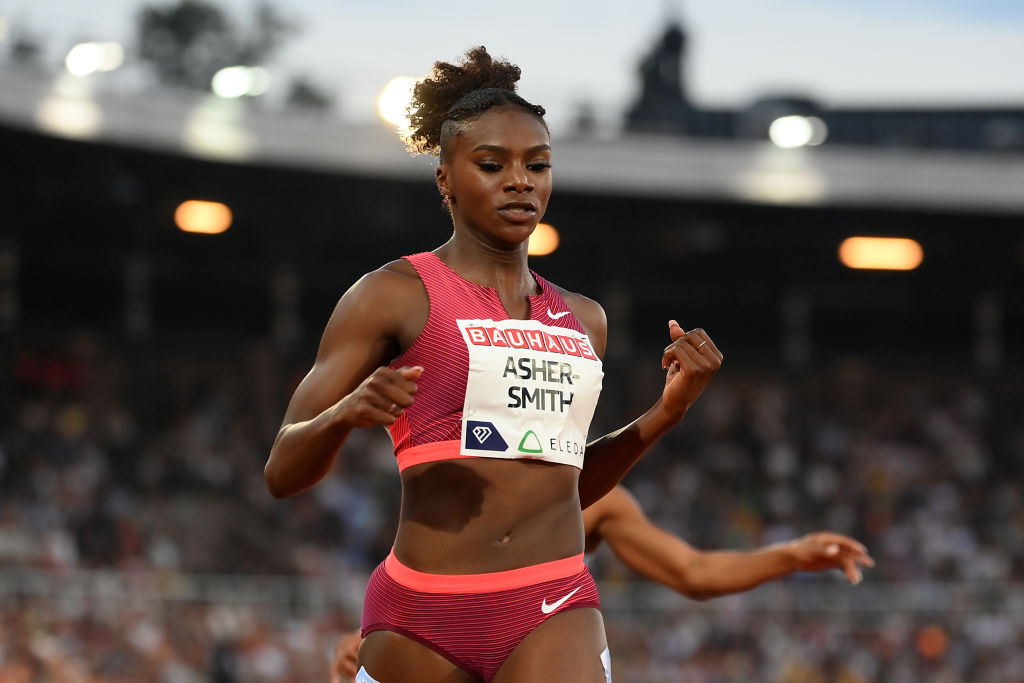British Athletics on mission to buck trend of mediocre Championships

Just once has the Great Britain and Northern Ireland athletics team left a World Championships with medals tallying into double figures – at Stuttgart in 1993 – and there’s little hope of a repeat at this year’s edition, which gets underway in Eugene, Oregon, tomorrow evening.
Of course there is medal hope – notably in the women’s 800m, men’s 200m and men’s 1,500m – but elsewhere it looks as though the track giants of the United States and Jamaica could sweep the sprints, with some of the African nations looking to go strong in the distance races.
But with 10 days of competition ahead, just what can we expect from the British team?
When the championships were last held in Doha in 2019, Britain picked up a total of five medals – two gold and three silvers – from an athlete pool of 78.
Dina Asher-Smith won the 200m in Qatar but will face a monumental battle to defend that title in Oregon. She’s set to go up against a stellar field including US champion Abby Steiner, Shericka Jackson and fellow Jamaican Elaine Thompson-Herah, 2019 bronze medalist Mujinga Kambundji and 2017 runner-up Marie-Josee Ta Lou of Ivory Coast.
Asher-Smith has raced just three times over the half-lap distance this year, clocking a season’s best of 22.27 in Rome – the 18th fastest time of the calendar year – compared to Jackson’s world lead of 21.55.
Heptathlete Katarina Johnson-Thompson is the other Briton looking to defend her title. Johnson-Thompson picked up the multi-event baton from London 2012 hero Jessica Ennis-Hill and, while she hasn’t been completely on form and admits to still struggling with the long jump, her lack of consistent multi-event participation this year could give her a surprise edge.
Both the men’s and women’s relay teams picked up 4x100m silver medals in Doha – without CJ Ujah, now banned for substance abuse – while Asher-Smith picked up a silver in the 100m last time out.
But Doha represented a low for British athletics; it was the team’s smallest medal haul since Helsinki in 2005.
The Kenyans, Americans, Jamaicans and others have always had their strength events in track and field while many European countries tend to ebb and flow.
Seven medals in Beijing in 2015 may seem average but represented fourth in the medal table and with the continued ban on Russian athletes there will be enhanced podium opportunities once more.
Beijing event saw Britain win their most golds – four – with Mo Farah picking up top spot in the 5,000 and 10,000m, Greg Rutherford claiming the long jump and Ennis-Hill the heptathlon.
Since then, though, the drop-off has been stark. Four became two in London and stayed at that level in the Middle East. And while competition has continued to strengthen, outright British favourites have dwindled.
There are 49 medal events at this year’s championships, including a mixed 4x400m relay, so there is ample opportunity to spring a surprise on a favourite on any given day.
Whether Britain can beat their Doha medal tally is one thing; whether they can medal in this edition of the championships at all is by no means certain.
Athletics events are decided by the odd millisecond here and centimetre there so there’s nothing to say that Great Britain and Northern Ireland cannot have a stellar meet but, based on how well the team has done in the past, it looks like being difficult.